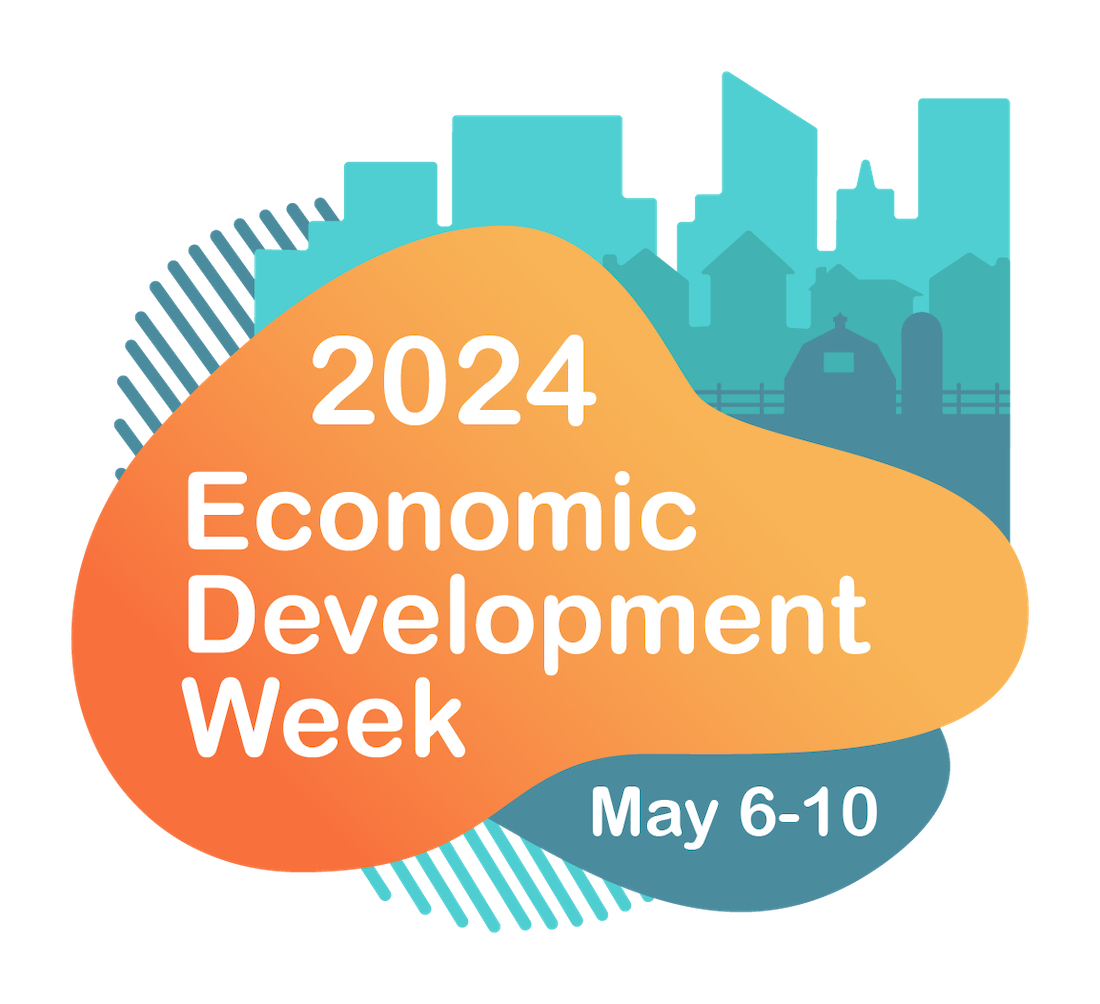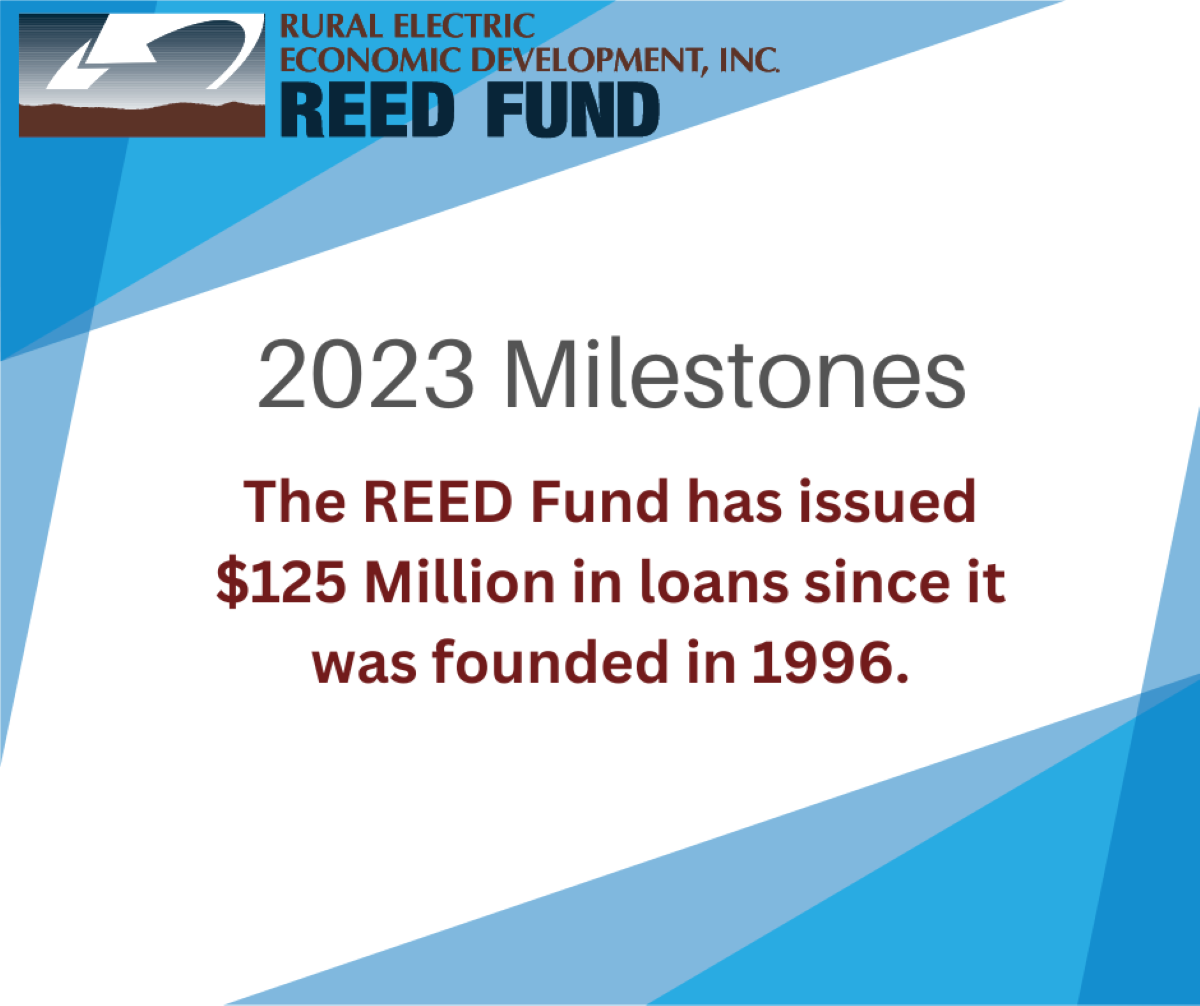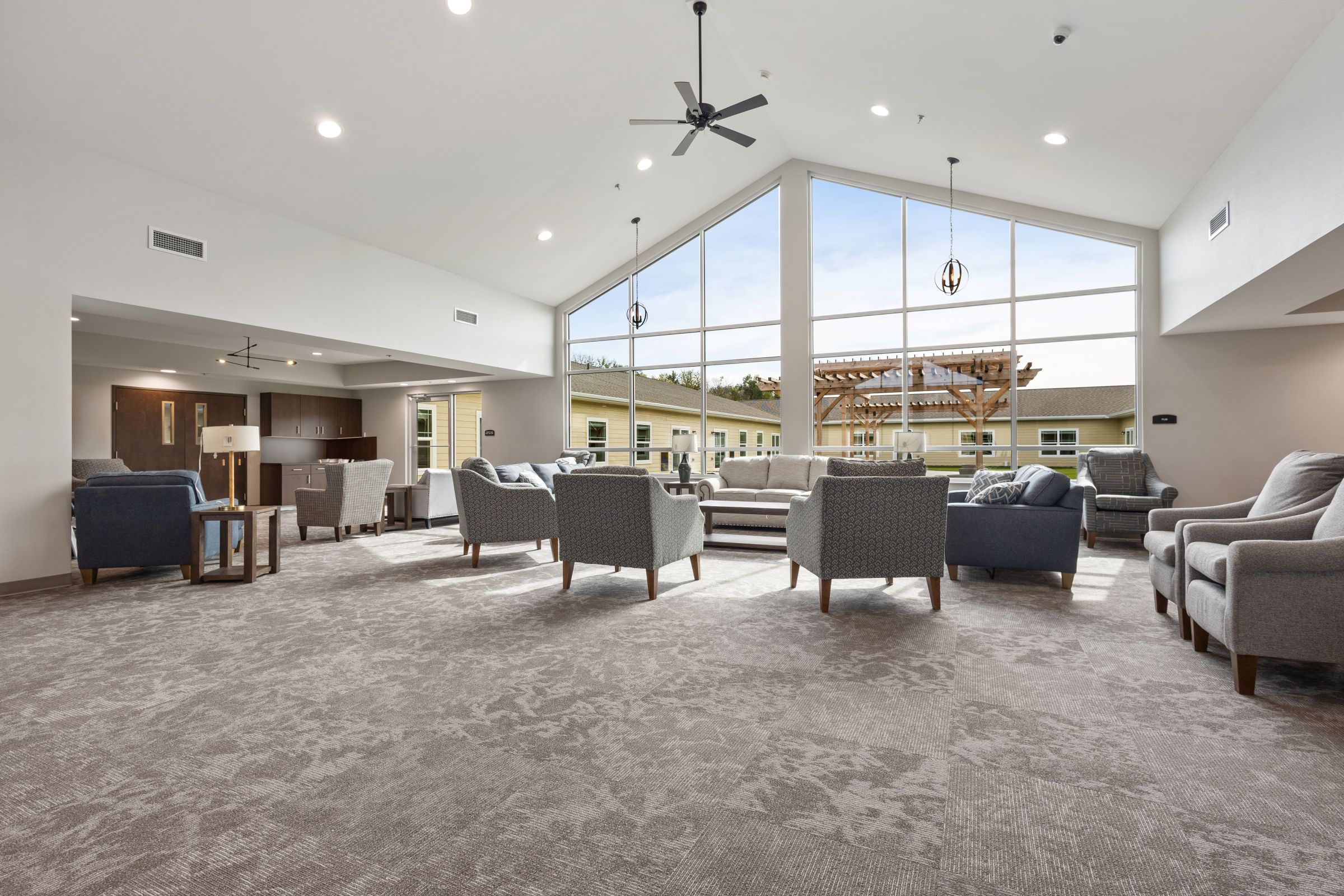
60
Agri-business

3 May 2024
The Rural Electric Economic Development, Inc (REED) Fund is excited to celebrate Economic Development Week (EDW) from May 6th - May 10th. This is an excellent time to reflect on the role economic development plays in communities and how electric cooperatives contribute to regional growth. Electric co-ops power 56% of the American landscape and serve 42 million people. Many are nonprofit organizations that fight to keep electric rates low so members can keep their lights on.
The REED Fund supports projects across its 27 different electric cooperatives; however, it also approves loans for projects outside of its service area. Applicants are often surprised that they qualify for REED Fund financing, even if they can’t use our members’ services.
“Every single project needs electricity,” says Eric Fosheim, Economic Development Manager at the REED Fund. “But served loads are actually a minority of the loans we fund. Historically our distribution cooperatives have only served 30-40% of the projects we have funded. Our coops do a great job of looking at the bigger picture and considering how a project benefits the community as a whole.”
Learn why our loan officers at the REED Fund are eager to finance projects even if they aren’t in our service range. Take a high-level view of economic development.
When our loan officers look at Reed Fund applications, they consider the overall impact of the projects. For example, a loan for the Garden City Volunteer Fire Department to update their facility doesn't just benefit the residents in that town. The project supports a significant part of Clark County, South Dakota. When the fire hall isn't in use, it serves as a meeting place for the community and can even be used as a voting precinct during election season. This makes the new facility a significant asset for the region that extends far beyond fighting fires.
As another example, funding for the new Peaceful Pines Senior Living Facility in Madison, South Dakota allows residents to age in place with three different care levels. Families won't have to move their loved ones to different cities so they can get the care they need. These same families also won't have to move so they can be closer to their aging relatives. This contributes directly to economic development because rural towns won't experience a decrease in population as residents get older and their families leave to take care of them.
“Our team at the REED Fund, as well as our board members, know that if folks in the rural Midwest have a desirable place to live, one that offers them the ability to have their basic needs met, they will stay in those communities longer. says Fosheim. “This allows them to stay near family, and age in the community many have known their whole lives. This, in turn, offers a direct benefit to many coop members.”
Nearly 70% of REED Fund applications are loans that its distribution co-ops won't directly serve. However, the borrowers frequently hear about the REED Fund through member co-ops.
The directors and board members of participating electric co-ops are often deeply involved in their local communities. They sit on their Chambers of Commerce or advise the local government from a utility standpoint. They use a combination of experience and a passion for the counties they live in to promote economic development.
“Even if a specific project doesn't qualify for a REED Fund loan, the member co-op leaders might be able to recommend other grants or opportunities to help communities reach their goals,” says Fosheim. “We all have the same desire to promote economic development through financially sustainable practices.”
Economic development often focuses on business recruitment and workforce development; however, it's important to remember that real people are affected by the growth of a community. Not only do you want to make a region desirable for workers and employers, but you also want to make it a good place to live.
This is another reason why the REED Fund is willing to approve loans for businesses outside of its member service area. Quality of life improvements can make living in the rural Midwest more enjoyable for members and non-members alike. Last year, the REED Fund was able to support Fun Time Adventures in its goal to get a new go-kart track, mini golf course, and outdoor maze.
“In rural communities, the nearest source of entertainment can be more than an hour away – at times, even three hours away,” says Fosheim.”These amenities allow residents to have fun right at home, which makes them more likely to spend their money locally and support local businesses rather than in larger communities.”
Many people are drawn to rural living because of the low cost of living and the desire to avoid big city traffic. This decision can also come with drawbacks. The REED Fund works to make living in these areas fun and comfortable, so people don't feel like they need to move to more crowded areas to receive certain amenities.
This Economic Development Week, get to know some of the electric co-op members the REED fund issues loans to. Learn more about the value these co-ops provide and how they support their local communities. Electric co-ops play a significant role in economic development, through financing projects and with the help of experienced, business-minded board members. The REED fund is honored to support its member co-ops and looks forward to watching this region thrive.
##


